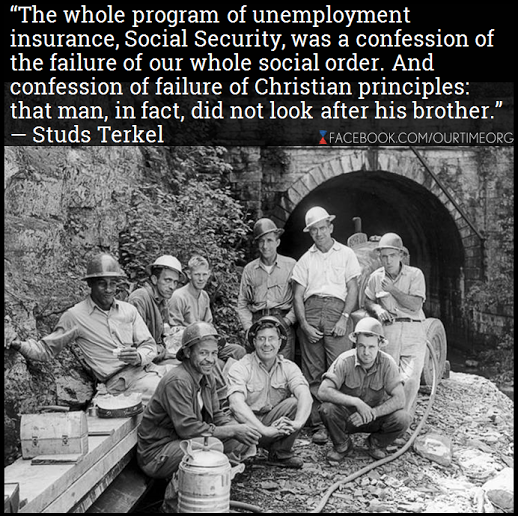The Importance of Recognizing Each Other for Our Daily Work
By:
If you haven't heard of Studs Terkel, you should. He was a Pulitzer Prize winning American author, historian, and broadcaster famous for detailing the tribulations of America's working men and women, until he passed away in 2008 at aged 96.
In his memoir, Terkel wrote "'ordinary' is a word I loathe. It has a patronizing air. I have come across ordinary people who have done extraordinary things." And his life's mission exemplified this sentiment through his famed book: Working: People Talk About What They Do All Day and How They Feel About What They Do
In the introduction to the book, Terkel writes:
This book, being about work, is, by its very nature, about violence — to the spirit as well as to the body. It is about ulcers as well as accidents, about shouting matches as well as fistfights, about nervous breakdowns as well as kicking the dog around. It is, above all (or beneath all), about daily humiliations. To survive the day is triumph enough for the walking wounded among the great many of us.
He continues:
Work is about a search for daily meaning as well as daily bread, for recognition as well as cash, for astonishment rather than torpor; in short, for a sort of life rather than a Monday through Friday sort of dying.

And in his 1997 book, Race: How Blacks and Whites Feel and Think about the American Obsession, Terkel examines how despite our inherent similarities, Americans too often default to stereotypes and fearful biases when confronting the issue of race.
"Each individual is different but we have a common vision I think, a hope, that is basically to be respected by that other person, I think, to be acknowledged, and to make a living, and to make some little dent in life," Terkel says in this video:
Studs was an inonic storyteller in highlighting our daily racial impulses, but more importantly, he always underscored a more cogent point: if we transcend these biases, we are all free and equal.
